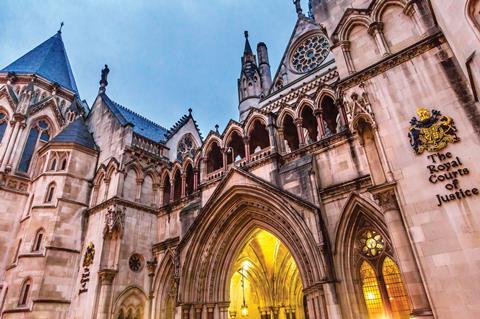Does the Hislop v Perde judgment mean defendants might be tempted to defer accepting an offer to game the system? And is Part 36 fit for purpose if it allows such behaviour?
For a provision designed to stop parties taking disputes all the way to trial, Part 36 of the Civil Procedure Rules was ostensibly successful in last week’s Hislop v Perde judgment from the Court of Appeal.

In June 2016, the defendant in a £1,500 road traffic accident claim did indeed accept the claimant’s offer to settle a week before the case would come to court. But the Part 36 offer had been made in November 2014 and the 21-day acceptance period was not met. This persuaded many, including the High Court judge, that here was a case where the court was justified in setting the claimant free from the confines of fixed costs after those 21 days to recover standard or even indemnity costs.
Sitting in the appeal, Lord Justice Coulson disagreed, saying the claimant could not argue that the delay – even with no apparent justification – triggered an ‘exceptional circumstances’ provision set out in the CPR. The claimant would be limited to fixed costs right up to the point where the offer was accepted.
So does this invite defendants to defer an acceptance decision until the last moment and game the system? And is Part 36 still fit for purpose if it allows such behaviour?
Matthew Hoe, a solicitor-advocate from national firm Taylor Rose TTKW, represented the defendant in Hislop. He says the judgment has resolved a difficult point, and stressed that Part 36 was not aimed at awarding costs greater than at fixed levels.
‘The policy change sought by claimants on this issue has never been set out by the Ministry of Justice,’ said Hoe. ‘If there were such a policy decision, then the balance of Part 36 must be considered.’
Hoe suggested that costs penalties for parties that settle before trial – even at a late stage – may simply mean they continue the case to trial, going against the core reason for the Part 36 provision in the first place.
Stephen Hines, president of the Forum of Insurance Lawyers representing defendant firms, said Hislop was a ‘logical, well-reasoned and coherent judgment which should be applauded’.
He rebutted the argument from claimant lawyers that this encourages lawyers to game the system, and insisted anyone engaging in this is likely to be in the minority. Even if the system over-rewards in some cases and under-rewards in others, this simply reflects the ‘swings and roundabouts’ of the fixed-costs regime.

Hines said there are many reasons why a Part 36 offer may be accepted late, including a change of circumstances; oversight or negligence; different advice from a fresh pair of eyes; or cold feet. ‘Such circumstances are part and parcel of the regime and were no doubt considered when the regime was structured.’
Even most claimant lawyers agree this is not the time for wholesale changes to Part 36, although there is discontent in the sector that defendants could delay with impunity.
Matthew Stockwell, a barrister and former president of the Association of Personal Injury Lawyers, stressed that Part 36 is one of the best things introduced by the CPR, but lawyers on all sides still make ineffective use of it and approach litigation like a ‘bucking bronco’, seeing how long they can hold on.
‘Any tweaks that provide a further incentive towards narrowing of issues, ongoing appraisal and settlement are likely to be welcome,’ said Stockwell. ‘Areas I’d welcome the CPRC [Civil Procedure Rule Committee] to consider are stronger, but more balanced penalties for late acceptance, whether through costs or interest. Currently things are arguably skewed in favour of defendants, as complained about in Hislop.’
John McQuater, APIL secretary and partner at Doncaster firm Atherton Godfrey, agreed that if Hislop is to be applied, the court should at least consider adding interest on to the settlement offer to take account of the delay in it being accepted. ‘Part 36 is working well and doesn’t need any significant amendment, but we are seeing very late acceptance of offers from defendants,’ he said. ‘The route the [Court of Appeal] has gone down does seem harsh and doesn’t reflect the reality of what is happening.’































8 Readers' comments